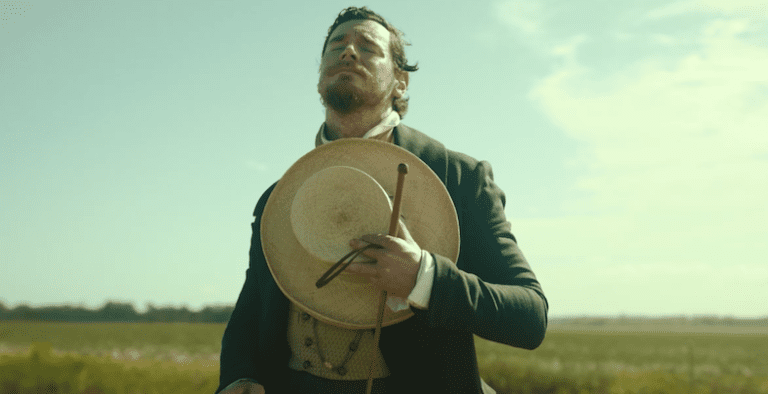
Amazon Prime’s The Underground Railroad, based on the 2017 Pulitzer Prize-winning novel by Colson Whitehead, is both great and terrible: It’s a powerful story with some incredible acting (hand an Emmy to Thuso Mbedu right now), but it can be really hard to watch at times.
It’s not just the grotesque abuse we see that makes the show so difficult: Rather, it’s in how true it feels. And for Christians watching, it can be particularly convicting.
The limited series centers on a young slave named Cora (played by Mbedu), chronicling her adventures riding the Underground Railroad (in Whitehead’s story, a literal railroad), undergoing a harrowing number of experiences as she makes her way north. But it begins in antebellum Georgia, when she’s still very much in captivity.
In the opening episode, the plantation on which Cora works has just been taken over by Terrance Randall, a cruel, sadistic man who treats the plantation’s mosquitos better than his slaves. And he can quote Scripture better than most preachers.
Both his sadism and spirituality culminate at an outdoor dinner party that Terrance is hosting. The party’s “entertainment”: The brutal whipping of a runaway slave recently captured and returned. After the slave (Big Anthony, he’s called) is almost whipped to death—his torso a mass of shredded meat—he calls the rest of his slaves in from the field and treats them to a sermon. As workers stack wood under Big Anthony’s feet, Terrance opens his Bible, takes off his hat and begins to read from 1 Timothy 6.
Let all who are under a yoke as slaves regard their own masters as worthy of all honor, so the name of God and the teachings may not be reviled. Those who have believing masters must not be disrespectful on the ground that they are brothers; rather they must serve all the better, since those who benefit from their good service are believers and beloved. Teach and urge these things.
As Big Anthony screams, “No more mercy, no more slaves” and shouts curses at Terrance, the slaveowner holds the Bible aloft and again reminds his captive congregation of Paul’s words.
“What is the penalty for disobeying the word of God?” Terrance says, as he lights his pipe and holds the match out. “Damnation and eternal fire.”
And with that, he tosses the match onto the fuel-soaked logs underneath Big Anthony, setting both ablaze.
It’s then that Cora makes her decision to run away with a fellow slave, Caesar—to leave Terrance Randall and his horrific interpretation of Scripture behind.
The Bible is a curious, and sometimes seemingly contradictory, book. Ever since it was compiled, Christians have often ignored the book’s overarching, undergirding messages in favor of delicately chosen verses that can reinforce our own prejudices and inclinations.
Those early biblical writers took the world as it was. They tried to teach believers how to follow Christ in spite of that world’s fallenness, and in Paul’s day, slavery was a fact of life in the entire known world. And yet, in the midst of that, Paul and the Bible reminded us that, in Christ, we are all brothers—that a slave is not inferior, nor an owner superior in God’s eyes. “There is neither Jew nor Greek, there is neither slave nor free, there is no male and female, for you are all one in Christ Jesus,” Paul writes to the Galatians. Terrance clearly missed that part.
That ethos of equality has been embraced by many believers throughout history. Christianity was a prime driving force of the abolitionist movement both here and abroad, and many of its most outspoken activists were preachers.
But many Christians took Terrance’s passage from 1 Timothy to declare that God Himself ordained slavery. Indeed, the Southern Baptist Convention—now the largest Protestant denomination in the U.S.—split from its northern brethren over the issue. The convention is still struggling with its racist past (which a 2018 Southern Baptist report acknowledged went “well into the 20th Century”), and some prominent Christians have left the denomination because they feel it hasn’t done enough to rectify it.
Certainly, racism isn’t the only arena in which Christians have twisted God’s words and intention. History is littered with examples. And the response is predictable. Many would-be believers, like Cora, run away.
Sin is a terrible thing, always. But when you try to dress sin in the clothes of a saint, or paint evil as the Word or wishes of God, we move on an altogether more terrible plane. Dante’s deepest circles of hell were often populated by nominal Christians. Jesus warned us to be aware of false prophets, telling us we can “recognize them by their fruits.”
“Even Satan disguises himself as an angel of light,” Paul wrote in 2 Corinthians. It’s telling that Terrance, as he gives his diabolical sermon, wears all white.












